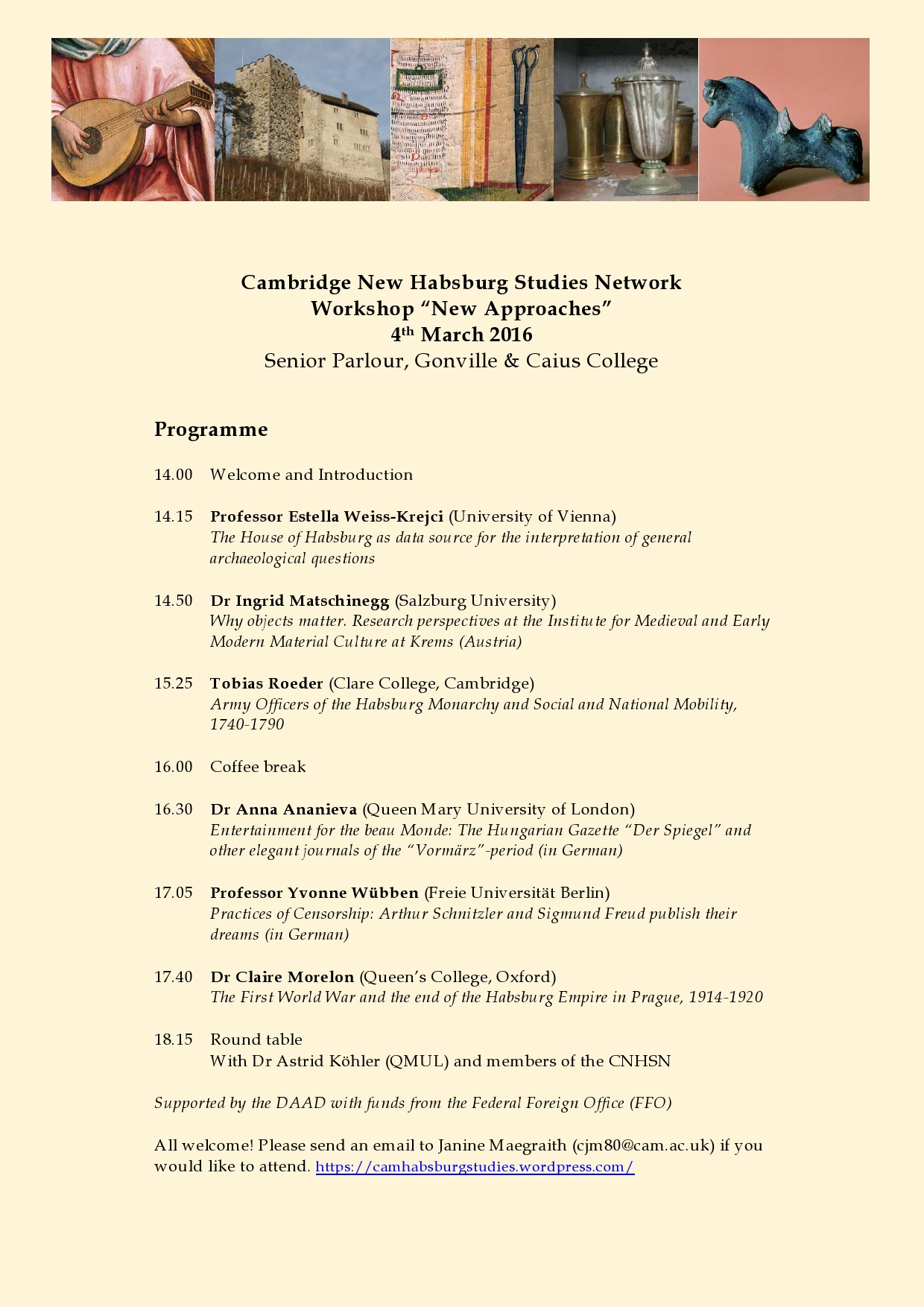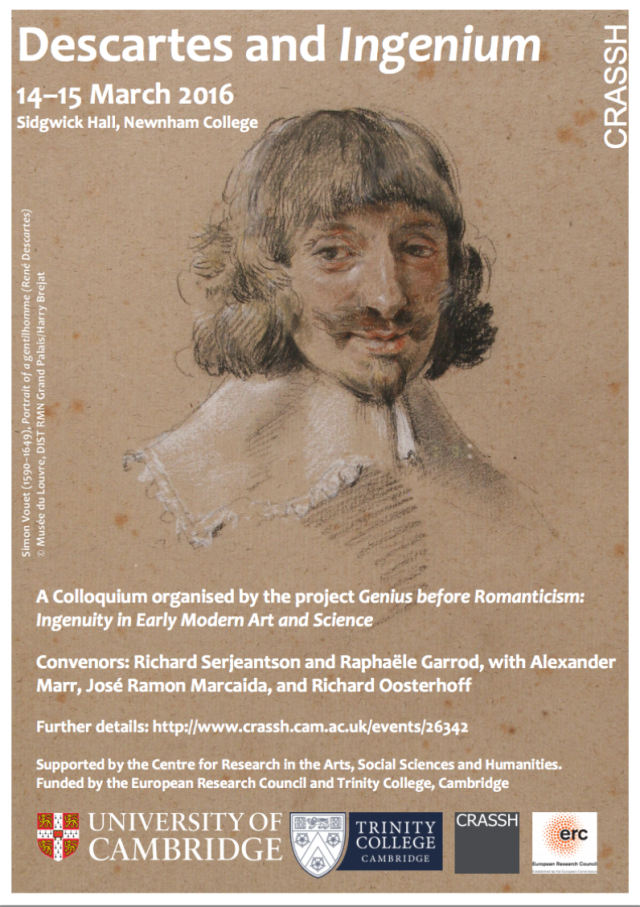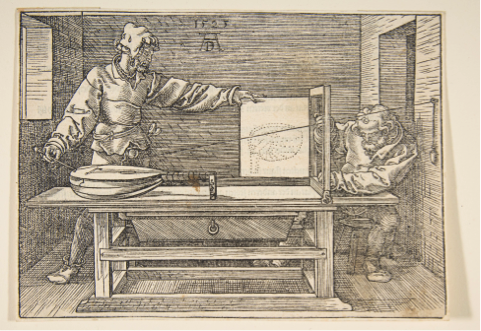Cambridge New Habsburg Studies Network Workshop
 More information here.
More information here.
Events This Week
Only one event this week, for the last week of term:
Thursday 10 March
Early Modern Economic and Social History Seminar
5pm, History Faculty, Room 12
Lloyd Bonfield (New York Law School)
Give me your wealthy: Immigration policy in late seventeenth- and early eighteenth-century England
The current immigration debate focuses on the admission to residence and citizenship of those fleeing poverty and civil unrest. But there are also pathways to residence and citizenship that seek to attract a very different sort of migrant: the wealthy. The present debate provides an interesting backdrop for previous ones. This paper focuses on the debate over migration c.1700 which culminated in the short-lived “Act for naturalizing Foreign Protestants“. Although partly inspired by the plight of foreign Protestants, the conversation focused primarily on economic, demographic and legal issues, a cluster of concerns that were absent from earlier debates over immigration.
Cambridge Society for Neo-Latin Studies Seminar
Tuesday 1 March, 5.30pm, Junior Parlour, T Blue Boar, Trinity College
Sarah Knight (Leicester)
A fabulis ad veritatem: Latin Tragedy, Truth and Education in Early Modern England
In his Ash Wednesday sermon of 1582, Laurence Humphrey, head of Magdalen College, urged his Oxford congregation to make the transition ‘à Cothurno ad Cineres, à prophanis ad sacra, à fabulis ad ipsam veritatis inuestigationem & disciplinam’ (from tragic buskin to ashes, from the profane to the sacred, from stories to that same examination and practice of truth). Humphrey distinguishes between drama and sermon, between being a passive spectator and an active seeker of religious truth, but many authors of Latin tragedies in early modern England expected greater intellectual engagement from those who watched or read their works than Humphrey’s sermon perhaps implies. The context of delivery for Humphrey’s sermon was also the most active site of composition and performance of drama, and so a study of Latin tragedy in early modern England inevitably focuses first on the universities. Some examples taken both from Oxford and Cambridge, such as the work of Thomas Legge and William Alabaster, as well as plays written by its graduates who wrote for continental Catholic institutions, particularly Edmund Campion, show how college and university drama evolved into a rich didactic medium. These plays suggest that the staging and consumption of such drama was not just for entertainment – Humphrey uses the term ‘ludicra’ – in this period, although collective enjoyment could be part of their appeal, and in several cases their authors express concern about the impressionable young minds of the audience and the formative influence of curricular and other institutional activity on the performance of drama.
All are welcome. Wine is served during the discussion of the papers.
For other inquiries, please contact Andrew Taylor at awt24@cam.ac.uk.
More information here.
Events This Week
Tuesday 1 March
Renaissance Graduate Seminar, GR06/7, 5.15pm
Hester Lees-Jeffries (Cambridge)
Shakespeare’s Tailors
Wednesday 2 March
CRASSH (Re)Constructing the Material World, 12.30pm AR SG1
Religion
Dr Joanne Sear (History,Institute of Continuing Education, University of Cambridge)
Professor Deborah Howard (Architecture & History of Art, University of Cambridge)
Thursday 3 March
Early Modern European History seminar, 1pm, Gonville and Caius Green Room
Irene Cooper (Cambridge)
‘Cose di casa’: The Materiality of Devotion in the Sixteenth-Century Neapolitan Home
Please email ab2126 with any events for advertisement.
Teaching & Learning in Early Modern England: Skills & Knowledge in Practice
A conference to be held at the University of Cambridge, 1st-2nd September 2016
Organisers: Jennifer Bishop & John Gallagher
From the workshop to the schoolroom, teaching and learning were everyday activities in early modern England. But who learnt what, from whom, and where? How did knowledge transmission work in practice? And what did it mean to be educated, to be skilful, in a rapidly changing society? This conference aims to bring together scholars working on the transmission of knowledge and skills in order to ask new questions about the educational cultures of early modern England.
What was being taught in early modern England? Scholarship on artisanal and technical knowledge has pointed the way towards a history of education and knowledge transfer not limited by the walls of educational institutions. This history can bring together the studies of literacy and language, of artisanal and technical crafts, of science and medicine, of print, fashion, and commerce.
Where did teaching and learning happen? Outside established educational institutions lay vibrant cultures of knowledge transmission and exchange. This conference is interested in sites where knowledge was transmitted formally or informally, from workshops to schoolrooms and printing houses to coffee houses. What was the role of location, neighbourhood, and community in the circulation of knowledge? How did material environments interact with learning processes?
Who was a teacher? Who were the masters, teachers, tutors, and experts – male and female, English and immigrants – who transmitted knowledge and skills in early modern England? How did masters and teachers establish their technical or pedagogical authority, and how did they advertise or compete with one another? Can we reconstruct networks of knowledge, communities of teachers? Do our historiographies do justice to all those who performed educational labour? This conference hopes to consider ushers, technicians, servants, and labourers alongside masters and tutors.
How were skills and knowledge taught and transmitted? Learning is more than an intellectual experience. What were the physical, oral, and sensory realities of early modern learning? In artisanal and academic situations, how was embodied knowledge taught and transmitted? What was the role of the oral and the verbal in the transmission of knowledge? How can scholars access the experiences of teachers and learners in early modern England?
The deadline for abstracts is 1st April 2016. Please send abstracts of no more than 300 words to teachingandlearning2016@gmail.com.
Shakespeare and Sex
‘This fraught, unspoken realm of pleasure, risk, discomfort, and danger’
Dr Joe Moshenska has written about Shakespeare and sex for the Oxford University Press blog – read more here.
Descartes and Ingenium 14-15 March 2016

Events This Week
Tuesday 23rd February
Renaissance Graduate Seminar, 5.15pm, English Faculty GR06/7
Dr Anna-Maria Hartmann (University of Oxford)
Know your Enemy: Stephen Batman, Edmund Spenser, and the Art of Protestant Discernment
Wednesday 24th February
Early Modern Interdisciplinary Seminar, 12pm, SG1, English Faculty Board Room
Richard Oosterhoff (CRASSH, Cambridge)
Idiot wit: framing lay knowers in the Northern Renaissance
Early Modern British and Irish History Seminar, 5.15pm, Graham Storey Room, Trinity Hall
John Gallagher (Gonville and Caius),
Learning Languages in Early Modern England
Friday 26th February
Early Modern French Research Seminar, New Gallery, Whipple Museum, 2pm
Jennifer Oliver (St. John’s College, Oxford):
Congnoistre l’engin de noz ennemys: Machines and Machinations in Rabelais and Beyond




